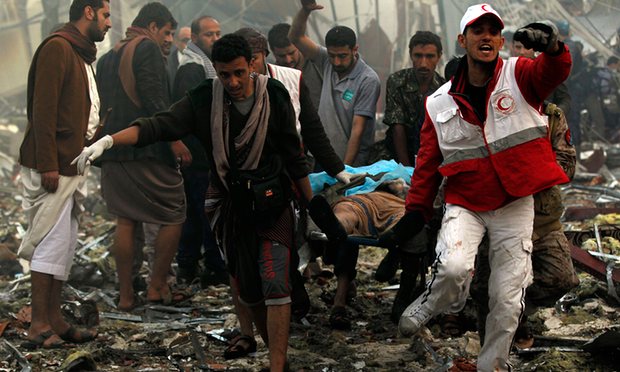Does UK’s lucrative arms trade come at the cost of political repression?
February 12 | Yamanyoon
On 24 January 2015 a private jet touched down in Saudi Arabia’s capital, Riyadh. On board were a handful of Foreign Office officials, security personnel and the then prime minister, David Cameron, who was visiting the kingdom to pay his condolences following the death of King Abdullah bin Abdulaziz.
The decision to charter the jet – at a cost to the taxpayer of £101,792 – raised eyebrows among Whitehall mandarins. But when it comes to Saudi Arabia, normal UK rules don’t seem to apply. For decades the two kingdoms have quietly enjoyed a symbiotic relationship centred on the exchange of oil for weapons. Analysis of HM Revenue and Customs figures by Greenpeace EnergyDesk shows that in 2015 83% of UK arms exports – almost £900m – went to Saudi Arabia. Over the same period, the UK imported £900m of oil from the kingdom.
Now this relationship has come under scrutiny as a result of a judicial review brought by the Campaign Against Arms Trade (CAAT), which has sent alarm bells ringing in Whitehall. The case follows concerns that a coalition of Saudi-led forces may have been using UK-manufactured weapons in violation of international humanitarian law during their bombardment of Yemen, targeting Yemeni people .
The legal challenge comes at a crucial time for the UK’s defence industry, which makes about 20% of arms exported globally. In recent years Ministry of Defence cutbacks have led to the sector looking abroad for new sales, and the government, with one eye on the post-Brexit landscape, is keen on the strategy. Last month Theresa May heralded a £100m deal involving the UK defence giant BAE and the Turkish military, and many defence experts see this as a sign of things to come.
Source | The Guardian

